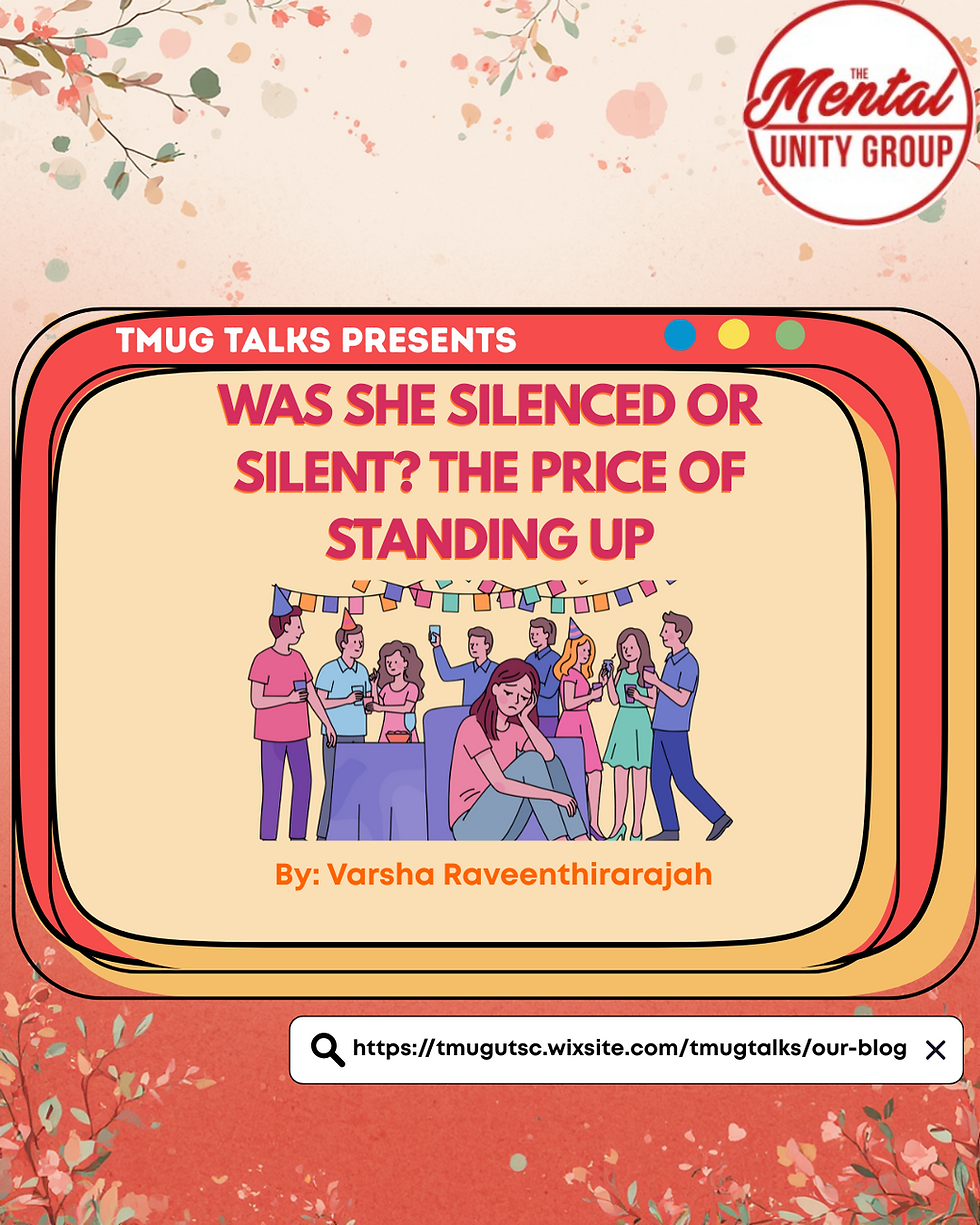“We Finish Each Other’s…Sandwiches!”
- Michelle Ng
- Feb 17, 2018
- 2 min read

Why do we love our friends? How do we know which memes will make our friends laugh? What makes us decide to swipe right instead of left?
Contrary to the idea that "opposites attract", research has shown that social relationships tend to develop faster between people who have more similarities than differences.
In other words - a more fitting phrase might be: birds of a feather flock together.
Evidence from ancient history reveals that small hunting groups often shared similarities across demographic aspects such as age, weight, and strength. In their study, Parkinson and colleagues decided to investigate similarities a step further by looking at brain activation. That is, do friends respond the same mentally when interacting with the world? Similarities in thought processes between individuals can provide a reasonable explanation as to why we enjoy spending time with people who share in our opinions and interests.
Using functional magnetic resonance imaging (fMRI), Parkinson et al. analyzed the brain activity of 42 first-year university students as they watched engaging videos. Each video was chosen to evoke certain reactions and interpretations (i.e. sentimental music videos, a documentary about baby sloths, etc.).
The authors believed that students who mutually identified as friends would have similar neural responses while watching these videos, in contrast to students who were not as close. fMRI results confirmed this hypothesis, with brain areas involved in learning, motivation, and memory (i.e. nucleus accumbens, amygdala, putamen, caudate nucleus) showing significantly similar response patterns between friends, rather than strangers.
This study allows us to understand why we often choose to be friends (or even romantic partners) with individuals we can easily relate to on multiple levels. It’s exciting to know that the “click” we feel when meeting a new person, whether in class or on a Tinder date, could possibly be rooted in this neural phenomenon.
Source:
Parkinson, C., Kleinbaum, A. M., & Wheatley, T. (2018). Similar neural responses predict friendship. Nature communications, 9(1), 332





Comments